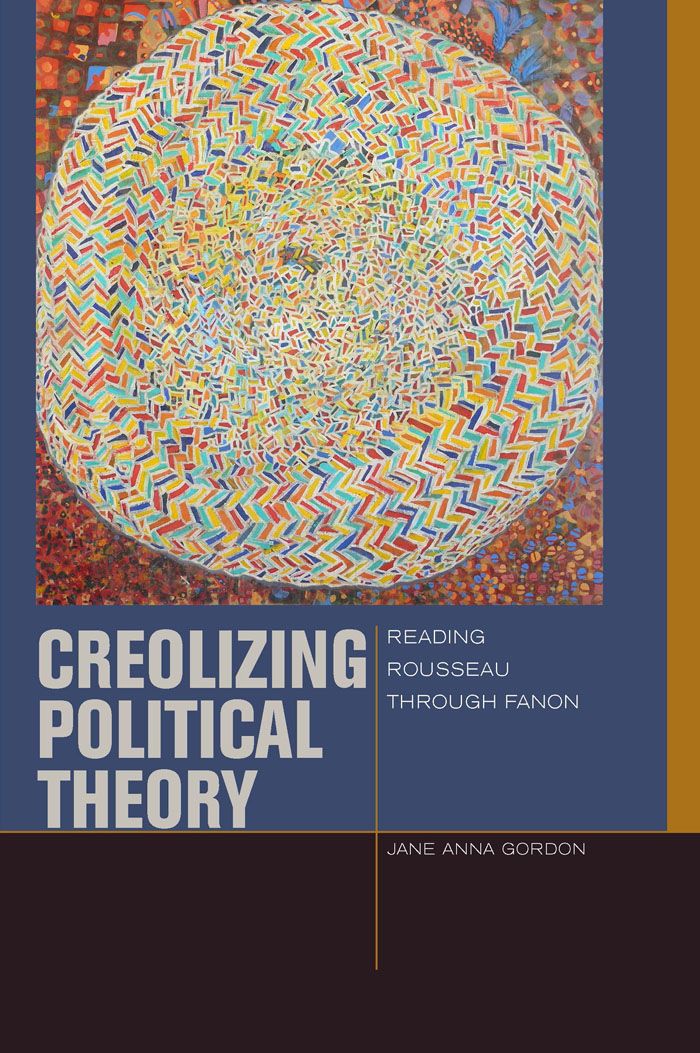Creolizing Political Theory
Reading Rousseau through Fanon

This book can be opened with

Might creolization offer political theory an approach that would better reflect the heterogeneity of political life? After all, it describes mixtures that were not supposed to have emerged in the plantation societies of the Caribbean but did so through their capacity to exemplify living culture, thought, and political practice. Similar processes continue today, when people who once were strangers find themselves unequal co-occupants of new political locations they both seek to call “home.”
Unlike multiculturalism, in which different cultures are thought to co-exist relatively separately, creolization describes how people reinterpret themselves through interaction with one another. While indebted to comparative political theory, Gordon offers a critique of comparison by demonstrating the generative capacity of creolizing methodologies. She does so by bringing together the eighteenth-century revolutionary Swiss thinker Jean-Jacques Rousseau and the twentieth-century Martinican-born Algerian liberationist Frantz Fanon. While both provocatively challenged whether we can study the world in ways that do not duplicate the prejudices that sustain its inequalities, Fanon, she argues, outlined a vision of how to bring into being the democratically legitimate alternatives that Rousseau mainly imagined.
This book offers a fresh perspective on the concept of creolization and on salient debates in political theory concerning multiculturalism, comparative analysis, (trans)nationalism, and globalization, just to name a few; it therefore makes an important contribution to the field of political theory, as well as to many others.”
Hello, Jean-Jacques! Hello, Frantz! An unexpected encounter between Rousseau, eighteen-century Swiss-born philosopher, and Fanon, twentieth-century psychiatrist and political visionary of Caribbean origin, is theory from the North meeting theory from the South. And thinking with creolization, a multifaceted notion with a history of crossing boundaries, opens new challenges for political studies as it does for other human sciences. Jane Anna Gordon is an incisive guide to its potential.
Creolizing Political Theory is a brilliant and innovative exercise in political theory. Through its creolized and highly nuanced reading of Rousseau - through Fanon - on the challenges confronting the practice of politics in the modern age, this work succeeds in taking both political theory and creole theory in new and enlightening directions. Further, it demonstrates ever so clearly the valuable contributions that Africana political theory can make to core concerns of Western political theory. A must read for scholars in the fields of political theory, Africana thought, and creole theory.

